Losing weight is tough. Between dieting, counting calories, hitting the gym, and juggling supplements, it can feel like a full-time job. One strategy that’s often overlooked, but surprisingly effective, is adding protein powder to your routine.
But, protein powder is only for bodybuilders or those looking to bulk up… right? Is protein powder good for weight loss?
You’d be surprised! Research shows that protein shakes can be a powerful ally for weight loss. They help you shed body fat while preserving lean muscle, keep you feeling fuller for longer, and even give your metabolism a little boost – if you do it right.
At Hercules Supplements, we want to help you make protein work for your weight loss goals. In this post, we’ll break down the different types of protein powder that actually help with weight loss, plus practical tips to fit them seamlessly into your daily routine.
What Is Protein And What Does It Do?
Put simply, protein is a vital macronutrient (nutrients your body requires in large amounts to provide energy and support essential functions). The three main macronutrients are protein, carbohydrates, and fats, and each plays a unique role in keeping your body healthy and energised.
Protein is made up of amino acids, which are like the building blocks of your body. There are 22 different amino acids, and 9 of them are “essential”, meaning you must get them from the food you eat because your body cannot make them on its own. Protein is found in almost every part of your body, including muscles, bones, skin, and hair.
- Builds and repairs tissues: Protein helps your body grow and fix muscles, skin, bones, and other tissues.
- Supports chemical reactions: Some proteins act as enzymes, which are special proteins that make chemical reactions in your body happen faster.
- Transports important molecules: Proteins like haemoglobin carry oxygen through your blood to keep your organs working.
- Boosts your immune system: Proteins are a big part of your immune system, helping you fight off infections.
- Regulates body processes: Protein helps control things like fluid balance and other important body functions.
- Provides energy: If your body needs extra fuel, protein can be used for energy, along with carbs and fats.
In short, protein is a building block, repair crew, and energy source all in one. Eating enough protein from both plant and animal foods is essential for keeping your body strong, healthy, and working properly.

Types of Protein Powders
Not all protein powders are created equal. Each type offers unique benefits, and understanding the differences can help you pick the right one to support your weight loss goals.
1. Whey Protein
Whey protein is the most popular supplement on the market. It comes from milk during cheese production and is absorbed by your body faster than any other protein source. Whey is rich in leucine, an essential amino acid that’s key for building muscle.
Main types:
- Whey Concentrate (WPC): Contains 78-88% protein, with some fat and lactose. Loved for its taste and lower cost.
- Whey Isolate (WPI): Contains 90-98% protein with minimal fat and carbs. Faster absorption, but more expensive.
Best for: Post-workout recovery, muscle repair, and supporting fat loss. Studies also suggest whey may lower triglycerides and boost HDL (good) cholesterol.
Considerations:
- Contains lactose, so may cause bloating or digestive issues in sensitive individuals.
- Overconsumption may lead to extra calories if not accounted for in your diet.
2. Casein Protein
Casein digests slowly, releasing amino acids steadily over several hours because it forms a gel in your stomach. Milk protein is naturally 80% casein and 20% whey.
-
Micellar Casein: The most common type, with 80-82% protein. Digests almost twice as slowly as whey, making it perfect before bed or between meals.
- Benefits: Protects muscles while you sleep, supports recovery, and provides about 50% of your daily calcium needs per serving.
Best for: Pre-bedtime or between meals to protect muscles while sleeping and aid recovery. Provides about 50% of daily calcium needs per serving.
Considerations:
- Slower digestion may not be ideal immediately post-workout.
- Like whey, it’s a dairy protein, so those with lactose intolerance may experience discomfort.
3. Plant-Based Proteins
Plant-based proteins are great for people avoiding animal products or those with dairy sensitivities. Common options include:
- Soy Protein: Complete protein with all nine essential amino acids. Digests at a medium pace. Supports immune and digestive health.
- Pea Protein: Easy to digest, gentle on sensitive stomachs, but slightly lower in methionine (can be paired with other proteins).
- Hemp Protein: Lower protein per serving (10-15g vs 25g in whey), high in fibre and omega-3 fatty acids. Best combined with other plant proteins for a complete amino acid profile.
Best for: Vegans, vegetarians, and anyone with dairy sensitivities.
Considerations:
- Plant proteins may require combining sources to get all essential amino acids.
- Some plant-based powders have a grittier texture or earthy taste.
4. Other Specialty Proteins
- Egg White Protein: Made from dried egg whites. Digests slower than whey but faster than casein. Ideal for those with dairy allergies.
- Collagen Protein: Focuses on joint health, skin elasticity, and connective tissue repair rather than muscle building. Contains amino acids like glycine, proline, and hydroxyproline.
- Blended Proteins: Combines different protein sources to improve taste, balance amino acids, and maximise benefits.
Best for: Targeted health goals like joint support, sensitive stomachs, or balanced amino acid intake.
Considerations:
- Egg white protein may be less effective for building muscle compared to whey or casein.
- Collagen is not a complete protein and won’t fully replace other protein sources for muscle growth or weight loss.
- Blends vary widely, so always check the label for protein content and added ingredients.

How Protein Powder Supports Weight Loss
Protein powder does more than just help you meet your daily protein needs, it creates the perfect conditions for losing fat and keeping muscle. Research has found that protein affects your body in several key ways that support weight loss.
1. Appetite Suppression
One of protein powder’s most powerful effects is controlling hunger. Compared to the same number of calories from carbs or fats, protein keeps you feeling fuller for longer.
Here’s how it works:
-
Hormone regulation: Protein intake, especially whey protein, increases hormones like GLP-1, PYY, and CCK, which reduce hunger. At the same time, it lowers ghrelin, the “hunger hormone” that triggers cravings.
- Stronger fullness signals: These hormone changes send clear “I’m full” messages to your brain, helping you eat less naturally.
What this means for you: Studies show people eating high-protein meals (60-68% protein) feel much fuller than those eating lower-protein meals (10-19% protein). Even starting your day with a protein-rich breakfast can help control appetite all day long.
2. Boosting Metabolism
Protein powder can help your body burn extra calories, even without exercising more.
- Higher thermic effect: Your body uses more energy to digest protein than carbs or fats. Around 20-30% of calories from protein are burned during digestion, compared to 5-10% for carbs and 0-3% for fats.
- Preserves energy expenditure: High-protein diets help prevent the usual drop in resting energy expenditure (REE) that often comes with weight loss. One review found people on high-protein diets burned about 140 more calories per day than those on standard-protein diets.
- Extra calorie burn via gluconeogenesis: Protein increases glucose production in the liver, which burns additional calories because this process requires energy.
This combination helps explain why high-protein diets often lead to more fat loss, even when calorie intake is the same.
3. Muscle Preservation
One of the biggest benefits of protein powder for long-term weight control is its role in keeping muscle while losing fat. This is because muscle burns more calories than fat, even at rest. The more muscle you have, the higher your natural calorie burn.
In a six-week study, participants on a high-protein plan gained more muscle and lost more fat than those eating normal protein levels. Another study showed that whey protein users lost 6.1% of body fat while preserving muscle.
Protein, especially whey, is rich in leucine, an amino acid that stimulates muscle growth and repair. Whey contains 50-75% more leucine than many food proteins and is absorbed quickly, making it ideal post-workout.
When paired with strength training, protein powder can help you lose fat and build or maintain muscle at the same time, a key factor for sustainable weight loss.

Using Protein Powder for Weight Loss
Protein powder can be a powerful tool for weight loss, but only if you use it the right way. The amount you take, when you take it, and how you fit it into your diet can all make a big difference in your results.
1. Daily Protein Requirements
To lose weight effectively, you need more protein than the basic daily requirement. Research shows:
- General weight loss: 1.6–2.2 grams of protein per kilogram of body weight per day.
- Athletes or heavy exercisers: 2.2–3.4 grams per kilogram.
- People with higher BMI or body fat: Base protein intake on your goal weight, not current weight.
For example, someone aiming for 70 kg should target roughly 112–154 grams of protein per day. CSIRO research also recommends 1.2–1.6 grams per kilogram for general weight loss.
2. Timing and Frequency
How you spread your protein intake through the day matters:
-
Spread it out: Instead of loading up at dinner, aim for protein at breakfast, lunch, and dinner.
- High-protein snacks: Small protein-rich snacks between meals, like yogurt or a protein shake, can reduce overall calorie intake. One study found that protein snacks led to 100 fewer calories eaten at the next meal compared to carb-heavy snacks like crackers or chocolate.
- Workout timing:
- Cardio or aerobic sessions: Post-workout shakes help recovery.
- Resistance training, yoga, or Pilates: Pre-workout protein can boost performance and support muscle maintenance.
This “Protein Balance” approach helps your body build muscle protein and control hunger throughout the day.
3. Portion Control and Calorie Considerations
Not all protein shakes are created equal, calories matter too.
- A standard whey protein scoop has about 25 grams of protein and 113 calories.
- Weight loss shakes should ideally stay under 200 calories per serving.
- Mixing matters:
- Whole milk adds 148 calories
- Non-fat milk adds 83 calories
- Water is the lowest-calorie option
Keeping an eye on calories ensures your protein shake supports your weight loss instead of adding extra calories.
4. Meal Replacements and Snacks
Protein powder can replace a meal to help create a calorie deficit, but experts don’t recommend long-term replacement of whole foods.
- With meals: Adding protein supplements can maintain weight and reduce fat mass.
- Between meals: Snacking on protein powders can sometimes add extra calories, leading to weight gain if not tracked.
For a balanced meal replacement, aim for 300–400 calories, including protein powder plus nuts, fruit, or vegetables for fibre, healthy fats, and essential nutrients.
5. Combine Protein Shakes with Exercise
Protein powder supports muscle growth, but exercise is key.
- Resistance training matters: Strength training, yoga, Pilates, or bodyweight exercises work best when paired with protein intake to build and maintain muscle.
- Timing your shake:
- Post-workout shakes are ideal after cardio sessions.
- Pre-workout shakes may be more effective for strength-based workouts.
This combination not only builds muscle but also boosts calorie burn during workouts and keeps your metabolism elevated afterward.
6. Smart Meal Planning
A thoughtful approach to meal planning can amplify protein powder’s effects:
- Pair with fiber-rich foods to stay full longer and curb cravings.
- Spread protein intake throughout the day instead of taking a large serving at dinner.
- Use protein powder as a supplement, not a replacement: Base meals on protein-rich whole foods and add powder for extra support.
💡 Remember: Simply adding protein powder without adjusting your diet can add extra calories, which may slow or reverse weight loss. Our science-backed, client-loved protein powders and weight management supplements are designed to deliver real results.
7. Protein Powder vs. Whole Food Protein
Both protein powders and whole foods have unique benefits:
- Protein powders: Quick, convenient, and low in calories, great for boosting daily protein intake.
- Whole foods: Provide micronutrients, fiber, and lasting satiety, keeping you full and nourished.
💡 Best approach: Start with whole foods and use protein powder to fill gaps. This ensures you get enough protein and complete nutrition without overdoing calories.

Protein Powder Considerations & Myths
Protein powder can be a helpful tool for weight loss, but it’s important to understand its limits and common myths. Knowing what’s true, and what’s not, will help you make smart choices.
1. Digestive Issues
Some people experience bloating, gas, stomach cramps, or diarrhea from protein powders.
-
Why it happens: Whey and casein proteins come from milk, which contains lactose. Up to 65% of people worldwide have some lactose intolerance.
💡 Tips: Whey protein isolate has much less lactose than concentrate, making it easier to digest for people with mild sensitivities. Even plant-based proteins can cause bloating because they’re high in fiber. Some powders also use sugar alcohols like erythritol or sorbitol, which can act as laxatives.
2. Kidney Strain Myth
A common myth is that high-protein diets damage your kidneys.For healthy individuals, research shows no evidence of kidney damage from eating more protein. A review of 74 studies confirmed that normal kidneys handle protein without issues.
However, If you have chronic kidney disease, high protein intake can worsen your condition. Always check with a healthcare provider.
3. Excess Protein & Calorie Surplus
Too much protein, or protein in the wrong form, can backfire for weight loss.
- Some protein powders and ready-made shakes are high in added sugars, sometimes exceeding daily limits (24g for women, 36g for men).
- Mixing shakes with milk, fruit, or other ingredients can push calories up to 1,200 per serving, which may cause weight gain instead of loss.
- Research shows consuming more than 22% of daily calories from protein can have more risks than benefits.
4. Common Protein Myths
“Protein shakes alone will make you lose weight.”
Protein alone won’t magically burn fat. Weight loss still depends on burning more calories than you eat. Studies show protein supplements work best with meals—using them as extra snacks can actually lead to weight gain.
“More protein is always better.”
Extra protein isn’t always helpful. For most people, intake should stay under 2g per kilogram of ideal body weight. Too much protein, especially from red meat, may increase the risk of kidney stones, heart problems, or even colon cancer.
“All protein powders are the same.”
Protein quality varies a lot. Some powders contain additives, artificial sweeteners, or harmful substances like heavy metals and pesticides. Look for certified products from organisations like NSF Certified for Sport or the Clean Label Project to ensure safety and quality.
Make Protein Powder Work for You
Protein powder isn’t a magic fix, but when used strategically, it can be a powerful ally for weight loss. By helping you feel fuller, boosting metabolism, and preserving muscle, protein supplements give your body the support it needs to burn fat effectively.
Choosing the right protein matters too: whey offers fast absorption, casein provides a slow-release option, and plant-based proteins align with dietary preferences. Each type brings unique benefits, but the key is how you use it, spread intake throughout the day, pair it with exercise, and integrate it into a balanced meal plan.
Remember, protein powder works best as part of a complete approach, not a standalone solution. With patience, consistency, and the right strategy, it can make your weight loss journey easier, more effective, and sustainable. Start smart, track your progress, and let protein powder help you reach your goals without sacrificing nutrition or convenience.
Fuel Your Results with Hercules Supplements
Stop struggling alone. At Hercules Supplements, we give a damn about your weight loss journey, and we make it easier, cleaner, and more effective! From fat burners and metabolism boosters to non-stimulant formulas and our premium Protein of the Gods: Ultimate Harvest, every product is science-backed, Australian-made, and designed to deliver real results.
Whether you want to burn fat, curb cravings, reduce bloating, boost metabolism, or hit your protein goals without the grit, we’ve got the tools to help you feel unstoppable. Smooth, delicious, and gut-friendly, our protein supplements give your body exactly what it needs to crush your goals with confidence.
Join the Hercules Family today. Shop our range of weight loss supplements and protein powders, and fuel your results the right way.



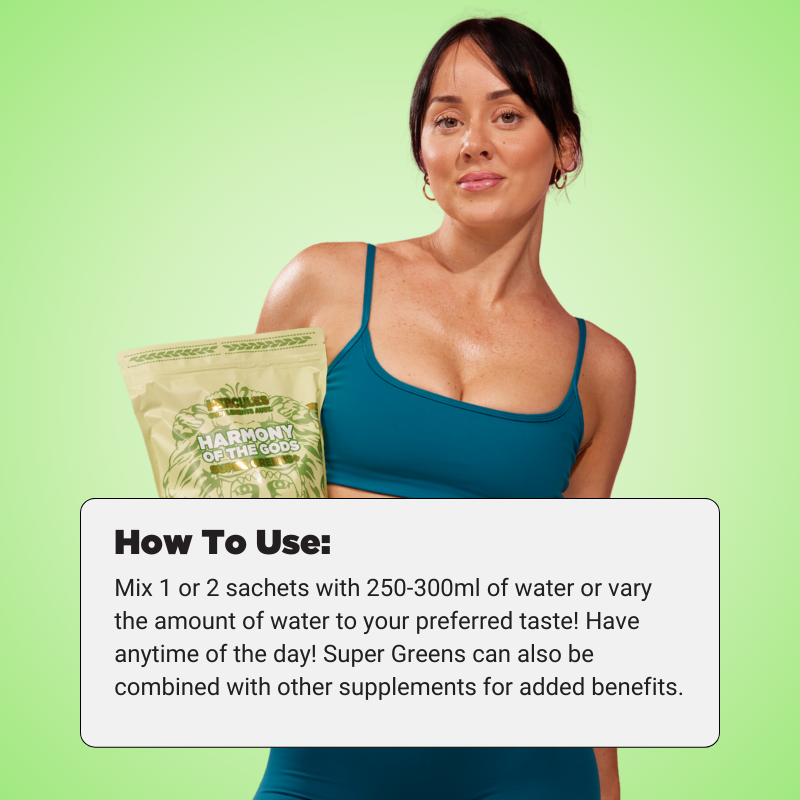
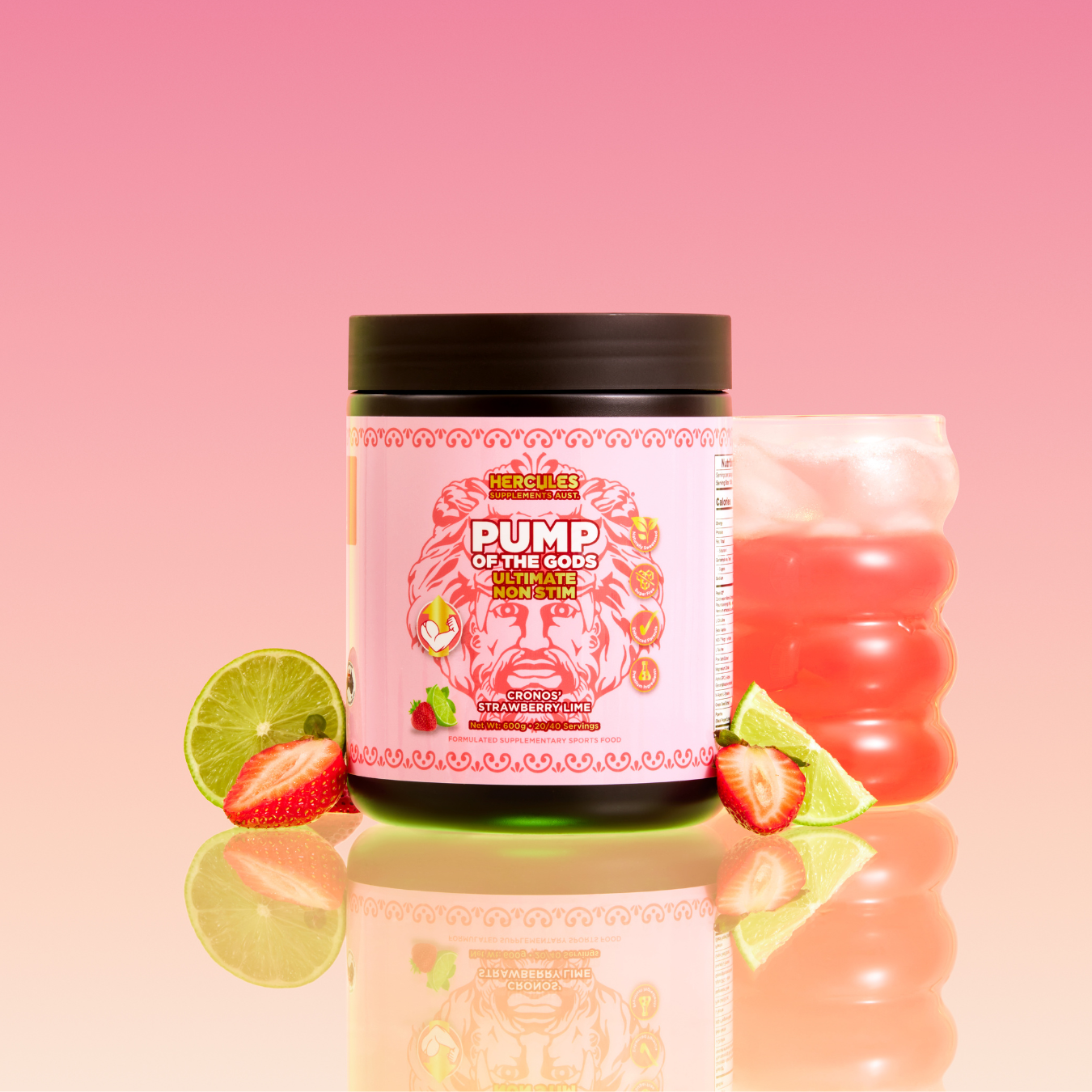
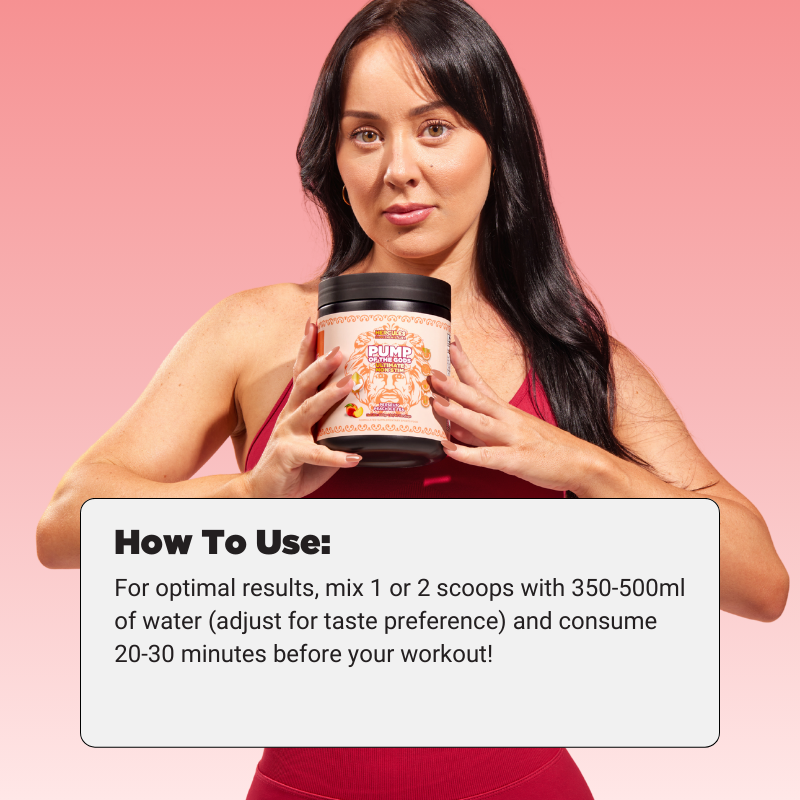
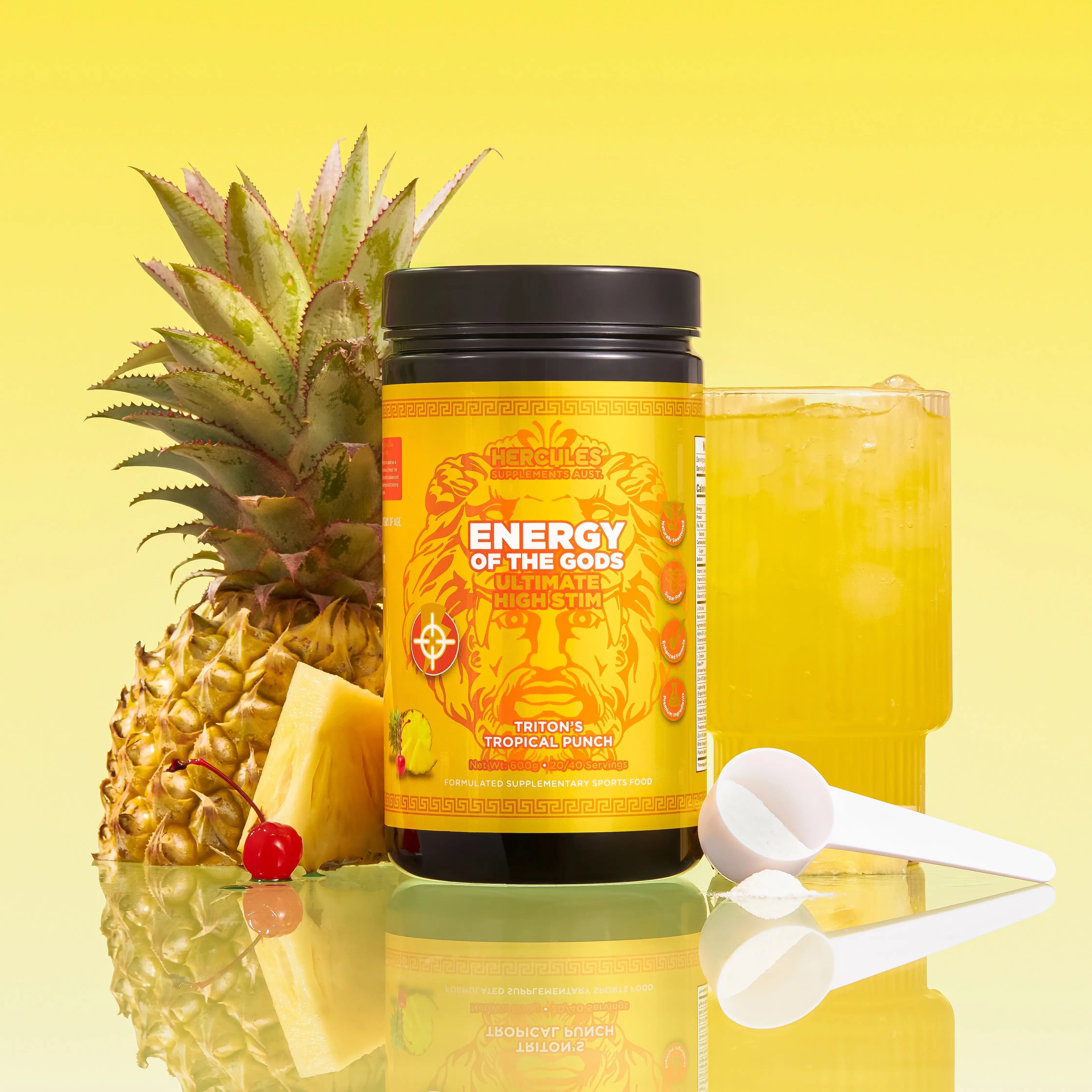
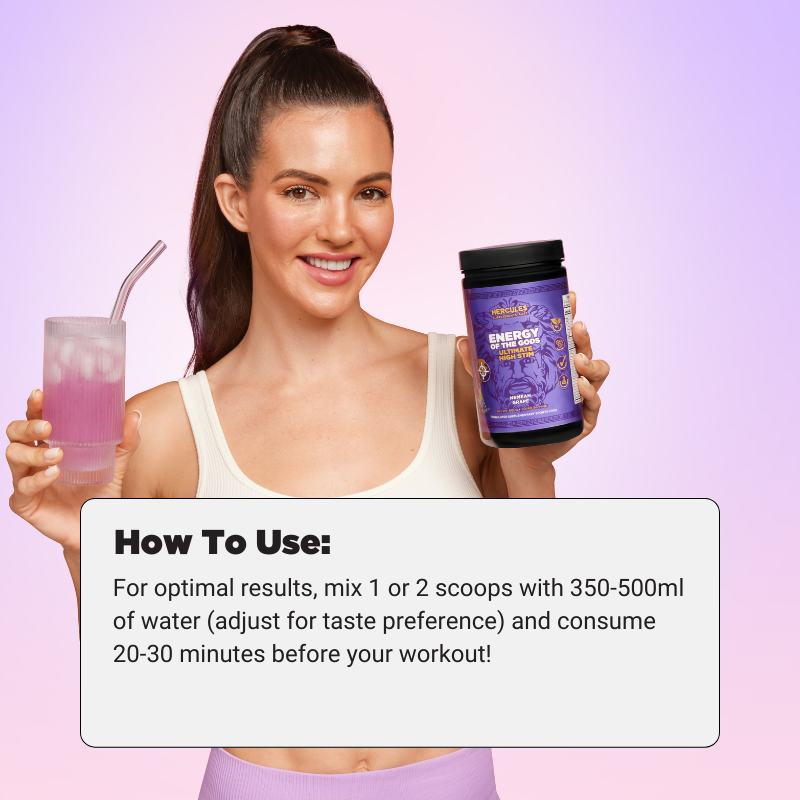
![The 7 Best Protein Supplements For Men [Australia 2025]](http://www.herculessupplements.com.au/cdn/shop/articles/group-portrait-of-runners-smiling-at-camera-2025-02-12-19-21-41-utc.jpg?v=1758098460&width=1500)

